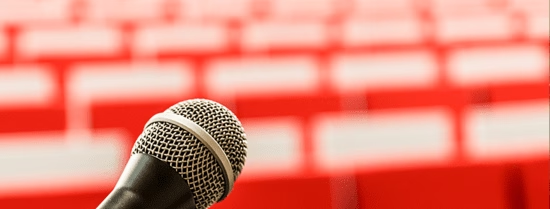May 3rd is World Press Freedom Day with the theme 'Journalism under digital siege'. Dr. Mijke Slot of Erasmus School of History, Culture and Communication researches the role of technology in journalism. For this she spoke to many journalists at regional and national media: "Compared to other countries, things are going well, but it is not all freedom here. We have to protect the freedom we have.”
Nowadays almost all journalists are on social media, all newspapers and news media have apps and collect a lot of data. In addition, the way we consume news has changed a lot, with many people seeing news primarily through social media. Research into the role of technology in journalism is therefore particularly important.
Threats in your Twitter feed
Many journalists also use social media to create a distinct profile for themselves and to seek contact with their audience. This sometimes has negative sides, such as threats that suddenly appear in your Twitter feed. "Regional news desks seem to have to deal with threats more often, although there is no hard data on this. They are much closer to their audience, they meet them in the supermarket", says Slot. "From the interviews, it also appears that regional journalists often know their critical readers and sometimes just invite them for a cup of coffee, which clears the air." Journalists at national media also have to deal with threats, but are more distant from their audience and will also be less inclined to drink coffee.
Technology gives opportunities to make beautiful stories
Yet Mijke Slot wants to emphasise that it is not all doom and gloom for journalists on online and social media: "There are also opportunities. If journalists really seek contact with their audience - not the small minority who scream, but the majority who do not - then that is very valuable for their work.” As a good example, she cites the open editorial staff of de Volkskrant or the editors of Nu.nl who actively find out what their audience wants to read about. "They listen to their audience without losing their dependence."
'Fake news'
It becomes different, of course, when real physical threats are made or abuse is involved. "It goes in the wrong direction when politicians shout things like 'fake news' or 'journalists are criminals'. Then there’sa sliding scale where people think that journalists cannot be trusted," says Slot. "Journalism is very important for every country, for the functioning of a democracy and a politician should not give a value judgement about that."
Politicians should set a good example
She therefore finds World Press Freedom Day of great importance: "This day is very important for our awareness that we should be happy with the freedom of the press in the Netherlands. It's really good here, certainly compared to countries like Mexico or Russia. We should keep it that way, it shouldn't get any worse. Aggression must be prevented and politicians must set a good example here."
- Researcher

